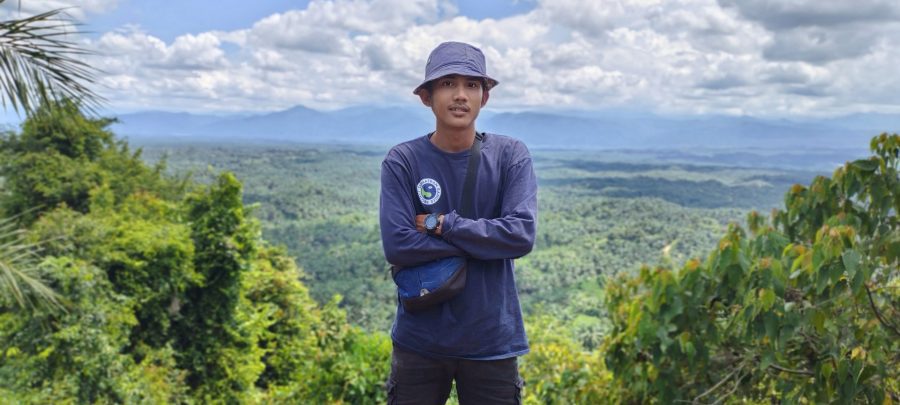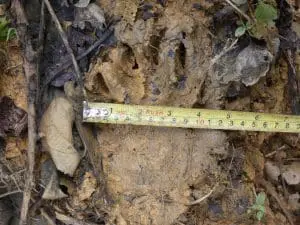

The Sumatran Ranger Project works to work to mitigate and prevent human-wildlife conflict through a number of programs, including staffing rangers to protect this biodiverse hotspot.
By visiting Brevard Zoo, YOU make an incredible impact on our natural world! Did you know that 25 cents of every daily admission and $5 of every membership goes toward our Quarters for Conservation program, which funds conservation projects throughout the world? In this “Updates from the Field” series, we’re sharing more on the projects YOU have funded!
Today, we’re learning more about one of our 2023 recipients, the Sumatran Ranger Project (SRP) from its founder, Amy Robbins.
When and how did your organization begin?
I established SRP in 2016 in response to the urgent need for support for forest edge communities that have settled along the border of the Gunung Leuser National Park. There is significant human-wildlife conflict here and no government support so I wanted to provide long term meaningful employment to locals to protect what is precious to them. I was working as a wildlife leader for an eco adventure company for more than 6 years and became friends with a lot of the locals who would talk passionately about wanting to live in harmony with wildlife and would express their frustration at the lack of support to enable them to do so. The National Park has its own teams of government-funded rangers, but their responsibilities end at the forest border. Forest-edge settlements are hard against the forest with little to no buffer for wildlife to which boundary markers mean nothing. As wildlife comes out of the ever decreasing forest, they come into conflict with humans as they inevitably wander into agricultural land. I wanted to find a way to protect the wildlife but find solutions for the people living alongside.
Could you tell us more about your mission?

A Malayan sunbear footprint.
Our mission is to halt activities that are a threat to the environment and to wildlife, and to support forest-edge communities in ways that benefit people and the environment. Through a regular presence along the forest border, we remove snares that are set to trap wildlife. Snares are not illegal outside the National Park and locals say they set them for pigs but critically endangered wildlife are at serious risk and some snares directly target Sumatran tigers and Malayan sun bears. Through providing practical solutions that slowly help to change attitudes toward wildlife over time, such as building predator-proof livestock corrals, we are protecting wildlife and livelihoods. Therefore the perceived need to set snares is eliminated as there is no need for retaliatory action when depredation of livestock is prevented. Additionally we aim to support forest-edge communities in other ways and have undertaken projects that simply improve quality of life or outcomes for communities such as renovation of a rundown kindergarten and construction of a community bathroom so children could safely bathe away from Sumatran elephants.
Can you tell us a bit about the animals you help through your work?
We work to mitigate and prevent human-wildlife conflict with Sumatran tigers, Sumatran orangutans, Sumatran elephants, Malayan sun bears, siamang and white handed gibbons, hornbills, porcupines, leopard and marbled cats, pangolins and a huge host of other wildlife living in this biodiverse hotspot. We are helping to reduce poaching and hunting of the species described. The Leuser Ecosystem is home to one of the last viable populations of Sumatran tigers and being able to provide practical solutions that prevent tigers from being harmed is very satisfying.
What kind of training do your rangers receive?
Most of our rangers have worked in or around the forest their entire lives. They also receive professional development opportunities such as training with other ranger teams in Sumatra and learning about various methods of preventing and mitigating human-elephant conflict. They also attend conferences and workshops, collaborating with others in the area. We recently employed 2 more female rangers so we now have 3 in total which is helping to balance the diversity within the team. Two of these women are university educated and are receiving practical training on the job.
We appreciate that you involve the local community in your work. Why is this so important?
Without community support there is no positive long term outcome for wildlife. Having our communities support and buy in to what we are doing is vital. We receive their support to patrol in and around their privately owned land and in reciprocation we provide support and practical solutions to help them live alongside wildlife. We provide mobile phones so communities can call us when they require urgent assistance and donate noise deterrents to help empower land owners to undertake their own mitigation. We have built 9 predator-proof livestock corrals over the last couple of years and the communities have gone from skeptical and unsupportive of this approach, to now requesting corrals to protect their livestock (and therefore livelihoods). Our communities are not closely connected to conservation or to outsiders and SRP represents a vital connection between them and the environment.
How will the funds from Brevard Zoo help your organization?

Camera footage of a Sumatran tiger.
Ranger salaries – the most crucial funding so we can maintain our team of 11 rangers in full time employment to maintain a presence along the forest border.
Additional predator proof livestock corrals that enable protection of livelihoods through providing safe overnight grazing to livestock, and better outcomes for tigers.
Camera traps – to help collect data on the incredible biodiversity utilizing areas outside the protection of the National Park.
Drone batteries – to help monitor the relic herd of Sumatran elephants. We are the only organization closely monitoring this small breeding population. Additionally, drones are used in the mitigation of some conflict events involving elephants or orangutans.
Brevard Zoo is an independent, not-for-profit organization that receives no recurring government funding for our operating costs. Your generous support enables us to continue to serve our community and continue our vital animal wellness, education and conservation programs.